Top AI Music Generators in 2025 for Musicians and Composers
December 6, 2024

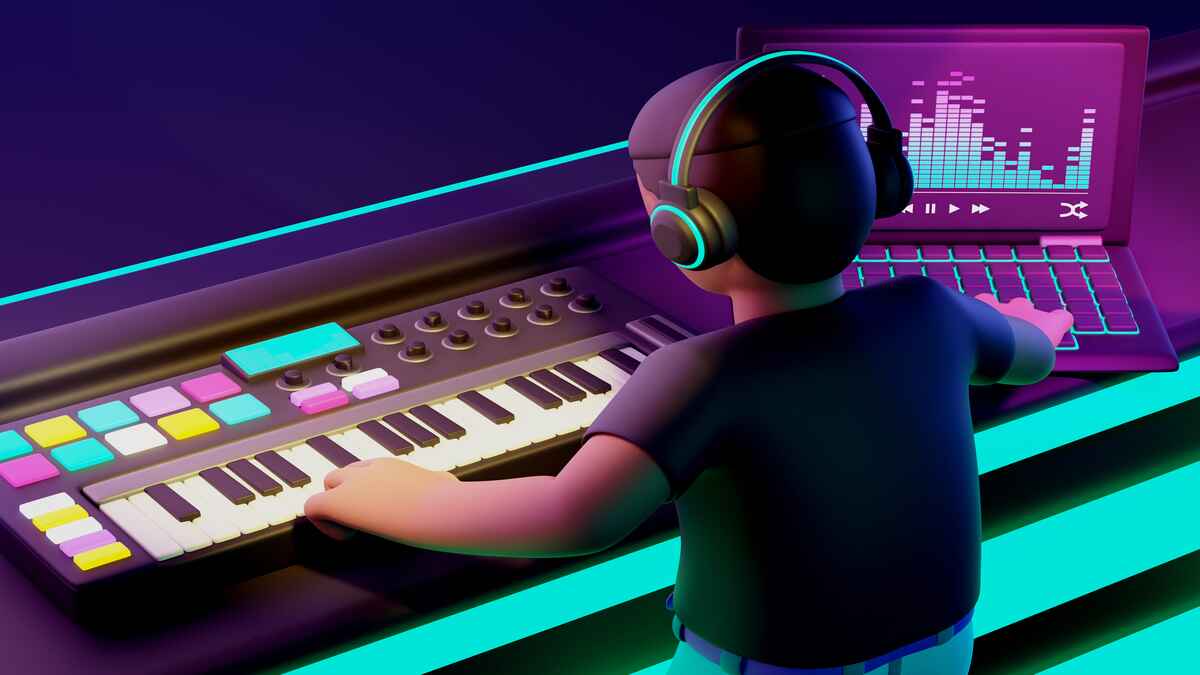
Artificial intelligence (AI) has permeated various industries, and the music world is no exception. AI music generators, powered by advanced algorithms and machine learning, are revolutionizing how music is composed, produced, and consumed. These innovative tools offer many benefits for musicians and composers, from boosting creativity to streamlining the composition process. By understanding the core concepts, applications, and ethical considerations surrounding AI music generation, artists can leverage this technology to elevate their artistic endeavors and push the boundaries of musical expression. By effectively utilizing voice cloning tools with AI music generators, musicians can create unique and personalized musical experiences, such as generating music in the style of specific vocalists or creating AI-powered virtual duets.
AI music generation is a field of artificial intelligence that focuses on creating music using algorithms and machine learning techniques. These systems can generate various musical styles, from simple melodies to complex orchestral compositions.
AI music generators are trained on vast datasets of musical compositions, learning patterns, styles, and techniques. This knowledge allows them to generate new music based on specific prompts or constraints. Some common techniques used in AI music generation include:
Algorithms analyze existing music to identify patterns and structures, which are then used to create new compositions.
Neural networks, a type of machine learning, can process complex musical data and generate highly sophisticated music.
GANs consist of two neural networks, a generator and a discriminator, that compete against each 1 other to produce increasingly realistic music.
The intersection of AI and music has a rich history, dating back to the mid-20th century. Here are some key milestones:
In the 1950s and 1960s, pioneers like Max Mathews and Iannis Xenakis began exploring computer-generated music. They used early computers to create experimental compositions with complex rhythms and unconventional sounds.
The development of DAWs in the 1980s and 1990s revolutionized music production. These software tools allowed musicians to record, edit, and mix audio digitally, paving the way for more sophisticated AI-powered tools.
Recently, AI has been integrated into various music software, enabling features like automatic chord progression generation, melody creation, and style transfer.
The emergence of dedicated AI music generators has further expanded the possibilities of computer-generated music. These tools can create original compositions, remix existing music, and generate music based on text prompts.

AIVA is a creative AI tool designed to compose music in various styles. It is used by musicians, composers, and content creators to generate original compositions or assist in musical arrangements.
Free version available; Pro plans start at $15/month.

Amper Music is an AI music generator that creates original soundtracks tailored for videos, games, or presentations. It is designed for creators who need high-quality music without licensing complications.
A free version is available; there is custom pricing for enterprise users.

Ecrett Music allows users to create unique soundtracks by selecting a mood, theme, and instruments. Its simple workflow is designed for content creators and hobbyist musicians.
Free trial available; Pro plans start at $4.99/month.

Soundraw is an AI music generator focusing on customizable music creation, allowing users to tweak elements like tempo, mood, and instrumentation.
$19.99/month or $16.99/month for annual plans.
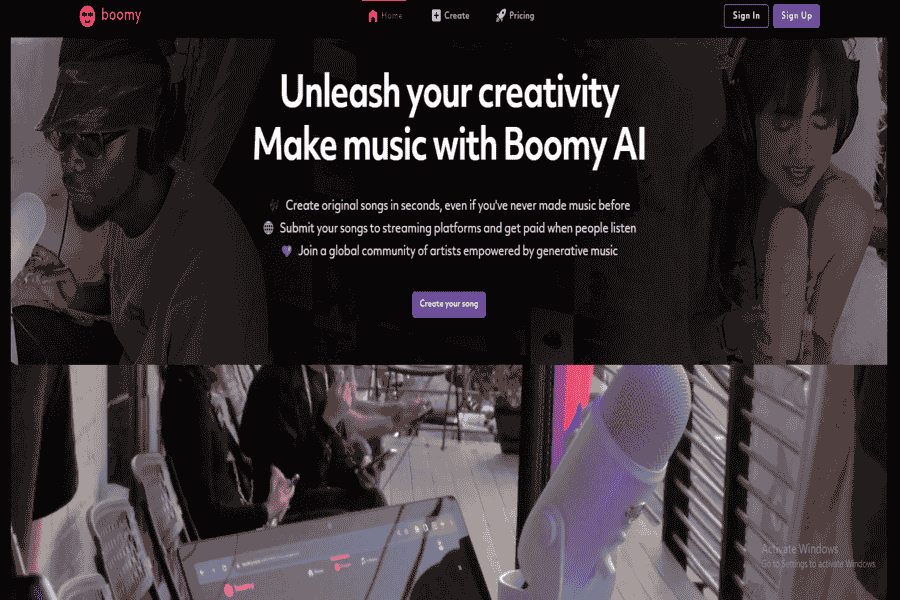
Boomy allows users to create original songs and publish them to streaming platforms, providing opportunities for musicians to earn royalties.
Free version available; Premium plans start at $9.99/month.
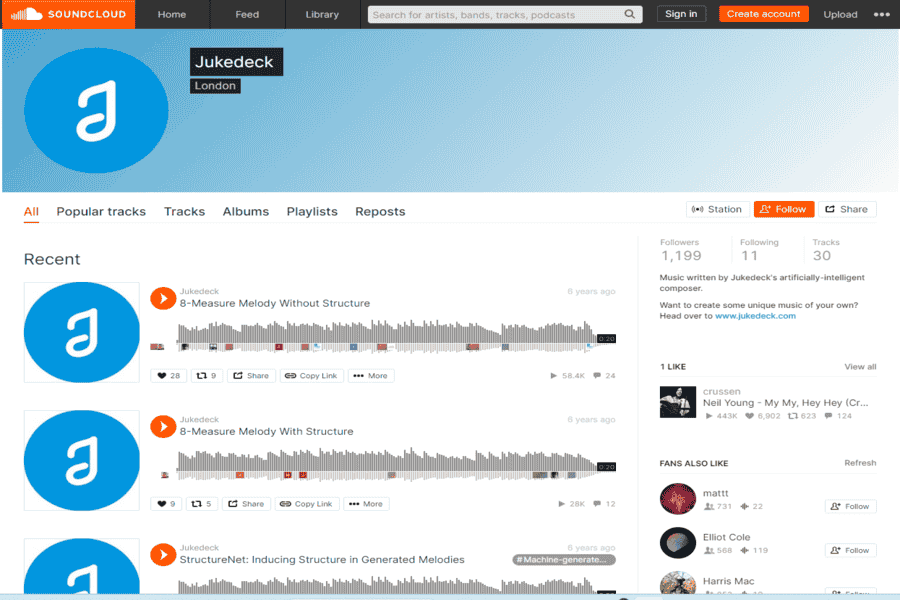
Jukedeck specializes in AI-driven music composition for videos, games, and other multimedia projects. Users can customize genres, tempo, and styles to fit their needs.
Free trial available; pricing varies based on usage.
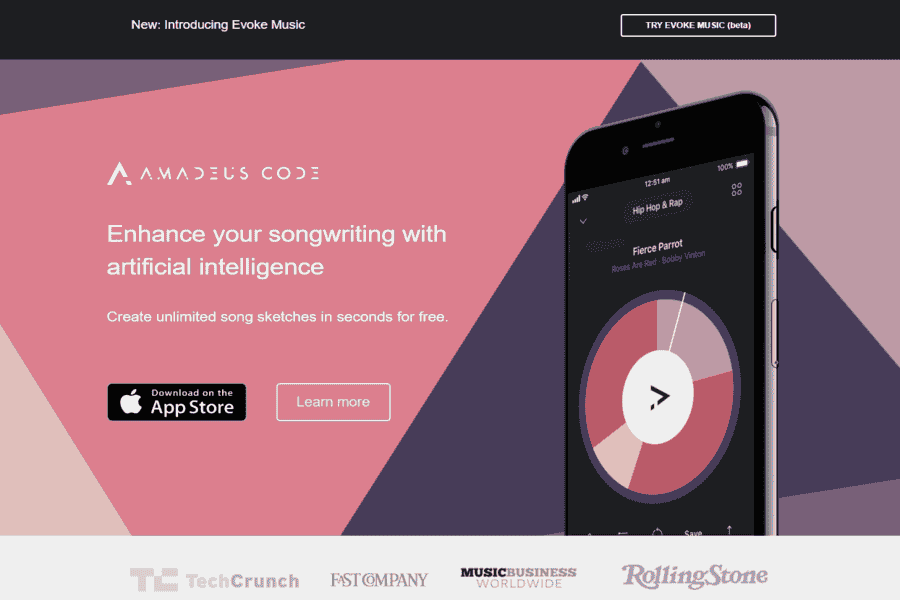
Amadeus Code uses AI to assist musicians in creating melodies and chord progressions. It’s an excellent tool for inspiration and creativity in songwriting.
Free trial available; Pro plans start at $9.99/month.
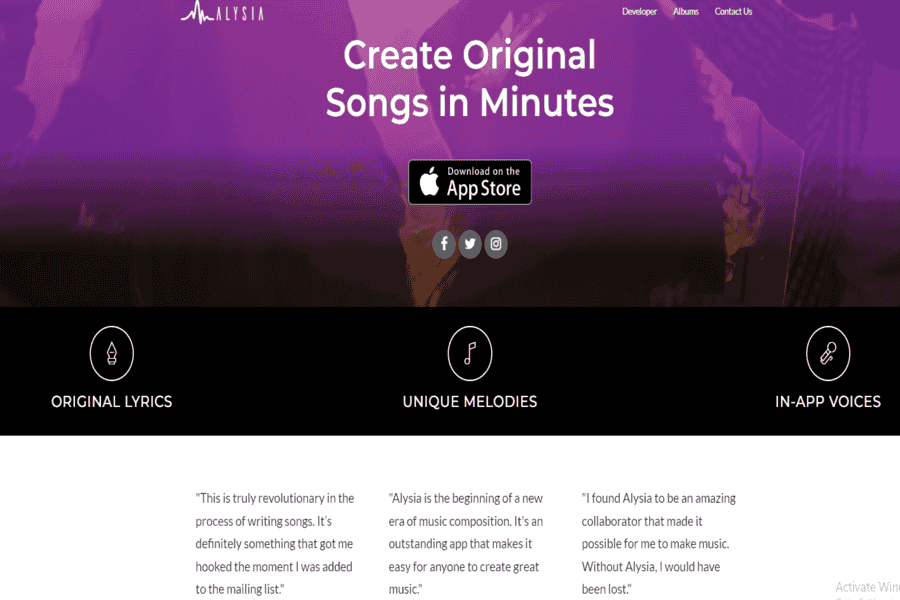
Alysia AI is an advanced tool that helps musicians and lyricists compose original songs. The platform provides melody and lyric suggestions, aiding creators in producing high-quality music quickly.
Free trial available; Premium plans start at $9.99/month.
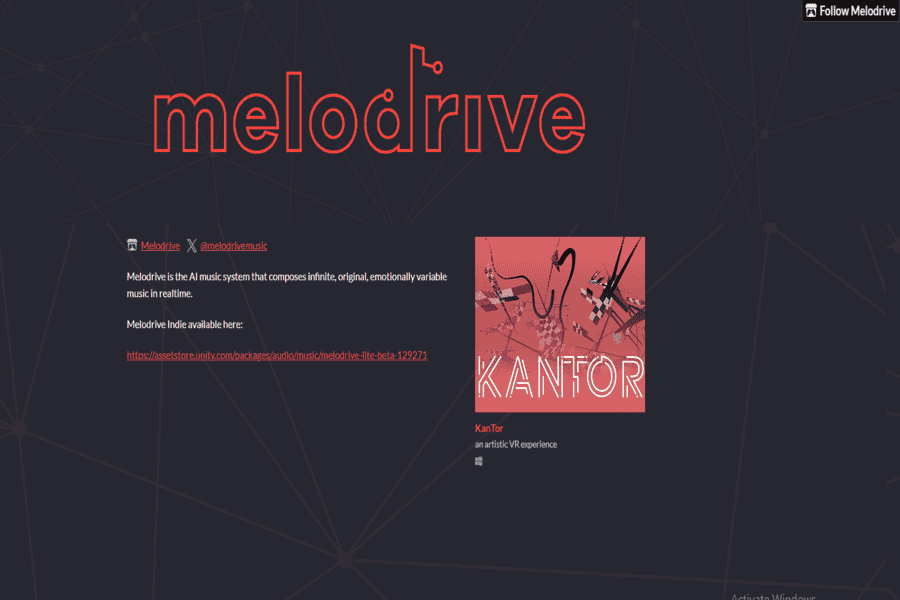
Melodrive is an AI tool designed to create adaptive music for video games and virtual environments. It dynamically generates music that changes based on user interaction.
Custom pricing based on project needs.
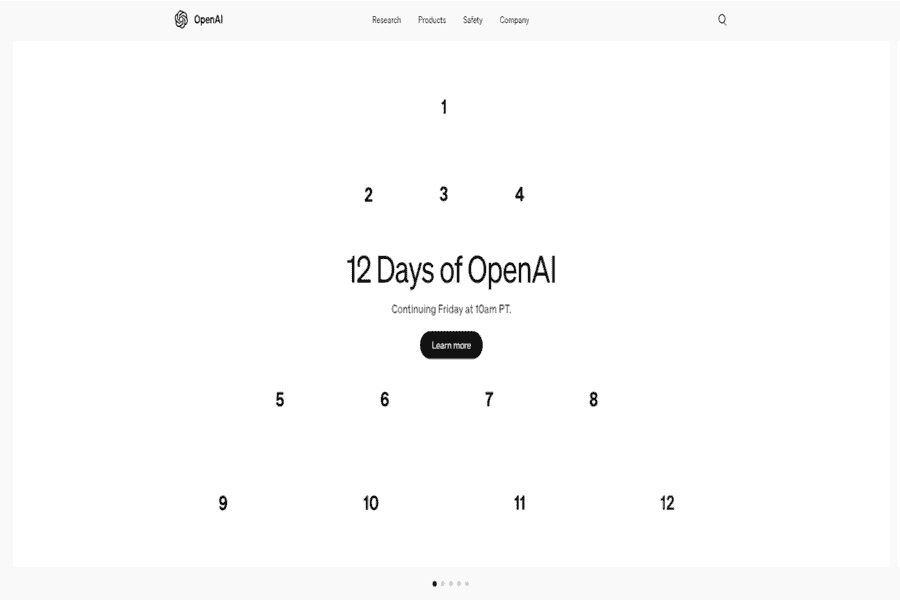
MuseNet is an AI model developed by OpenAI that can generate music in 10+ styles and seamlessly blend genres. It’s perfect for experimental compositions.
Free to access.

Endlesss is an AI-powered music collaboration platform where musicians can jam together live and remix ideas in real-time.
Free trial available; Premium plans start at $8/month.
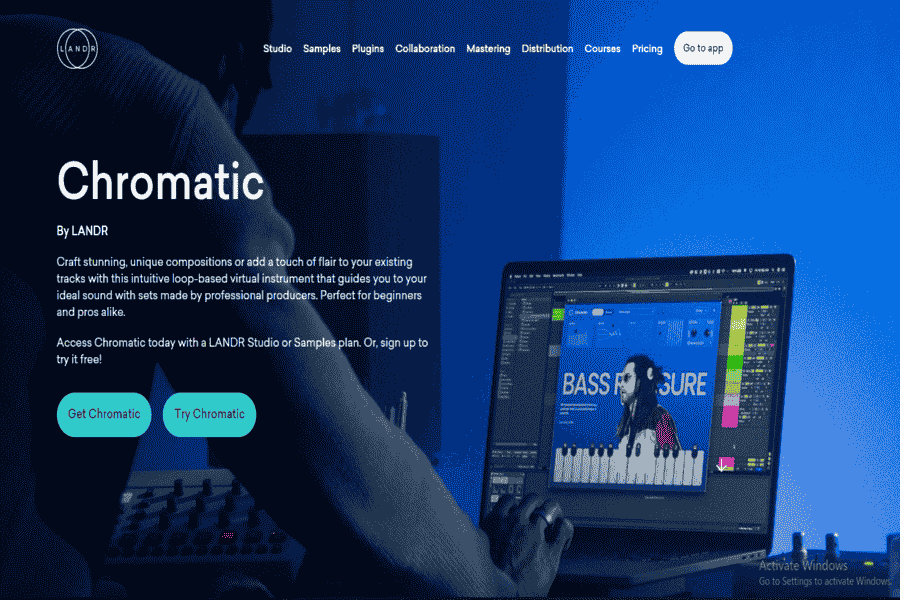
LANDR Chromatic is an AI-powered music tool designed to create melodies and loops. It focuses on simplicity and is tailored for beginner musicians.
Included in LANDR subscriptions starting at $4.99/month.
Orb Composer is a professional-grade AI tool for composing music, catering to film score composers, game developers, and advanced musicians.
The pro version starts at $99.
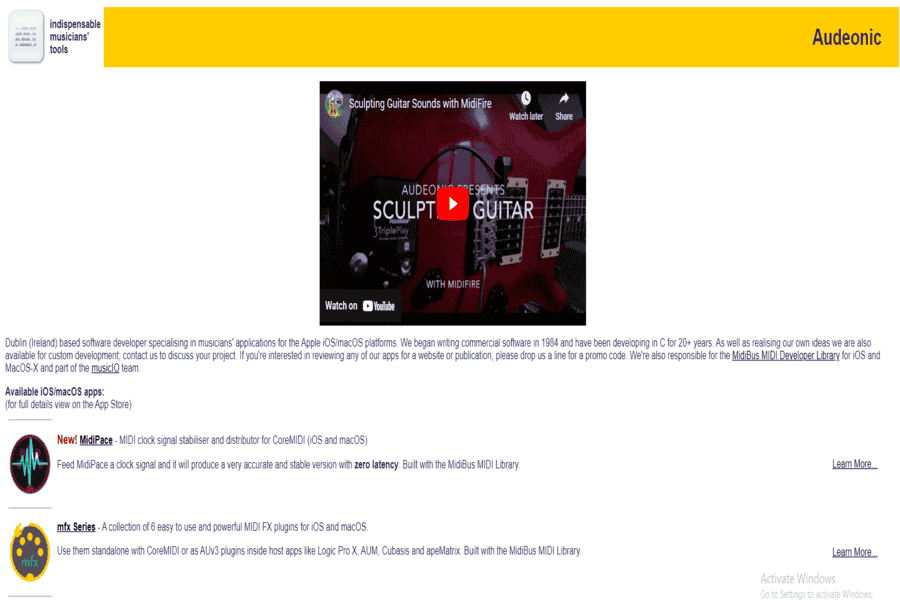
Humtap is a mobile app that lets users create full songs by simply humming a melody or tapping a rhythm.
Free.

Audeonic is a robust AI tool that assists musicians with MIDI creation, editing, and arrangement.
Pricing is available upon request.
AI music generators offer a multitude of benefits for musicians and composers:
AI music generators have revolutionized the music industry, providing a range of benefits for musicians and composers:
AI can generate unique melodies, harmonies, and rhythms, stimulating creative thinking and sparking new ideas.
AI can help explore various musical styles, from classical to electronic, enabling artists to experiment with unconventional sounds and techniques.
AI can automate repetitive tasks such as chord progression generation, rhythm creation, and arrangement, saving time and effort.
AI can quickly generate multiple musical variations, allowing artists to iterate and refine their ideas efficiently.
AI-powered tools can make music production accessible to individuals with limited technical knowledge, empowering a wider range of people to create music.
AI can simplify complex music production processes, making it easier for beginners to start creating music.
AI can generate unconventional and innovative musical ideas, pushing the limits of traditional music composition.
AI can combine elements from diverse musical genres, creating unique and hybrid styles.
While AI music generators offer significant potential, they also present several challenges that musicians and composers must navigate:
Ensuring the quality and originality of AI-generated music can be challenging. AI models may produce repetitive or generic compositions, lacking the unique artistic flair of human creativity.
Determining ownership rights and copyright issues related to AI-generated music can be complex. As AI models learn from existing music, questions arise about copyrightmaterial’sl’s originality and fair use.
AI music generators raise ethical concerns, such as the potential for job displacement and the impact on the musindustry’sy’s economic model. Additionally, there are concerns about the potential for bias in AI algorithms, which could perpetuate existing inequalities in the music industry.
AI music generators are tools, not replacements for human creativity. While they can assist in the creative process, they cannot fully replicate human-composmusic’sc’s nuances and emotional depth.
Using AI music generators often requires a certain level of technical expertise. Musicians and composers may need to learn new skills and tools to utilize these technologies effectively.
AI music generators have many practical applications, transforming how music is created, performed, and experienced. Here are some key areas:
AI can generate compelling melodies and harmonies, inspiring composers and songwriters.
AI can suggest rhythmic patterns and tempos that complement the musical style and mood.
AI can assist in orchestrating music, suggesting appropriate instrumentation and dynamic markings.
AI can create novel and innovative sounds, expanding the sonic palette of music producers.
AI can generate vast libraries of high-quality samples, saving sound designers time and effort.
AI-powered tools can tailor music lessons to individual needs and learning styles.
AI can provide interactive exercises and quizzes to help students learn music theory concepts.
AI can analyze performances and provide constructive feedback on technique and musicality.
AI can generate music in real-time, allowing musicians to collaborate with machines in live performances.
AI can create interactive music experiences where audiences can influence the generated music.
AI-generated music can promote relaxation, reduce stress, and improve emotional well-being.
AI can tailor music therapy sessions to the specific needs of individual patients.
AI music generators have emerged as powerful tools that are reshaping the landscape of music creation. By automating routine tasks, inspiring creativity, and enabling experimentation with new sounds and styles, these tools empower musicians and composers to reach new heights. However, it is crucial to approach AI with a mindful and ethical perspective, ensuring that it enhances human creativity rather than replacing it. As AI technology continues to evolve, the future of music holds immense potential, where human ingenuity and artificial intelligence collaborate to create groundbreaking musical experiences.
